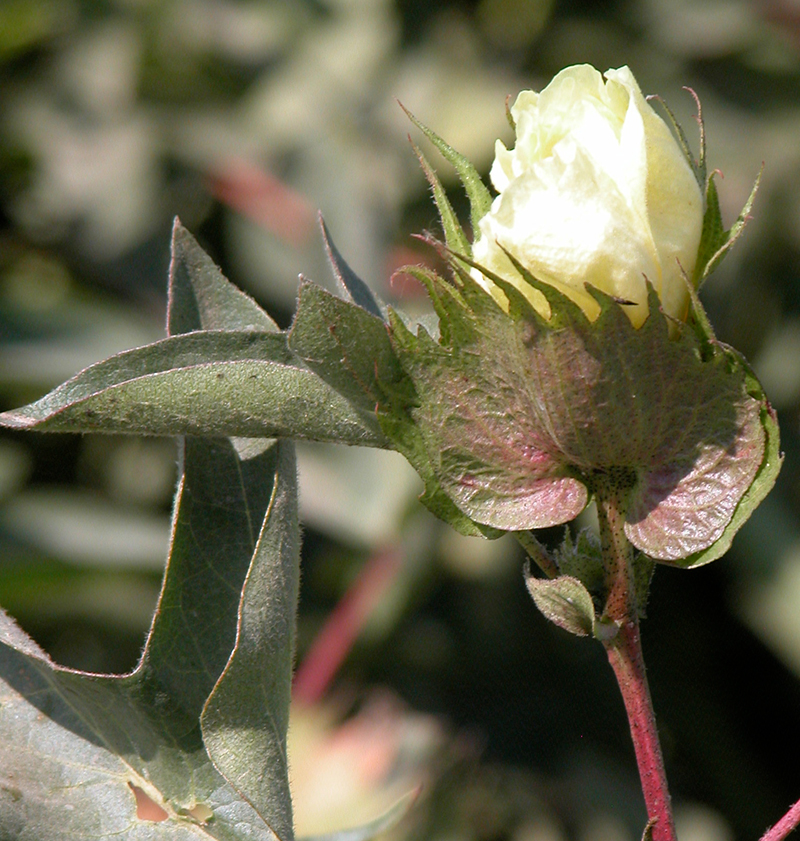
SCP is a private non profit organization who worked with conventional farmers to help them implement biologically based management practices. SCP's program enabled growers to reduce their dependence on toxic chemicals and utilized reduced risk practices leading to cleaner air and water in the region.
Growers annually enrolled fields ranging from 75 to 250 acres. As a participant in SCP's program, they were asked to implement a suite of crop management practices, with assistance from SCP.
Project support involved weekly field scouting for pests and beneficial insects, a list of chemicals to avoid (based on toxicity), direct access to University of California scientists and other crop and industry experts, farmer field days on pertinent topics, and assistance with marketing the cotton grown.
Other management practices tested included colored fiber production, interplanting with alfalfa and planting hedgerows.
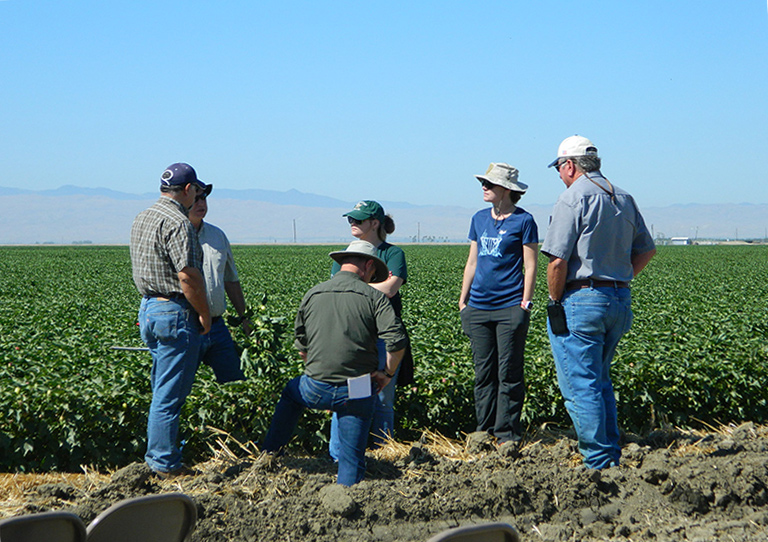 SCP hosted cotton field days providing pertinent growing information.
SCP hosted cotton field days providing pertinent growing information.
The majority of farmers found SCP's practices effective in reducing chemical inputs and in maintaining crop yields and often utilized the same practices on all the cotton and other crops they grew.
The project worked through a farmer-to-farmer exchange basis, which allowed farmers from different areas to get to know each other and to share information on an informal basis. This exchange was facilitated through SCP's meetings and on-line connections. Over time, the farmers came to trust each other and share pertinent crop practices and facts amongst themselves. In many ways SCP's program created a "community" of like-minded growers who then pooled their cotton to be sold as "Cleaner Cotton™" through SCP's marketing efforts.
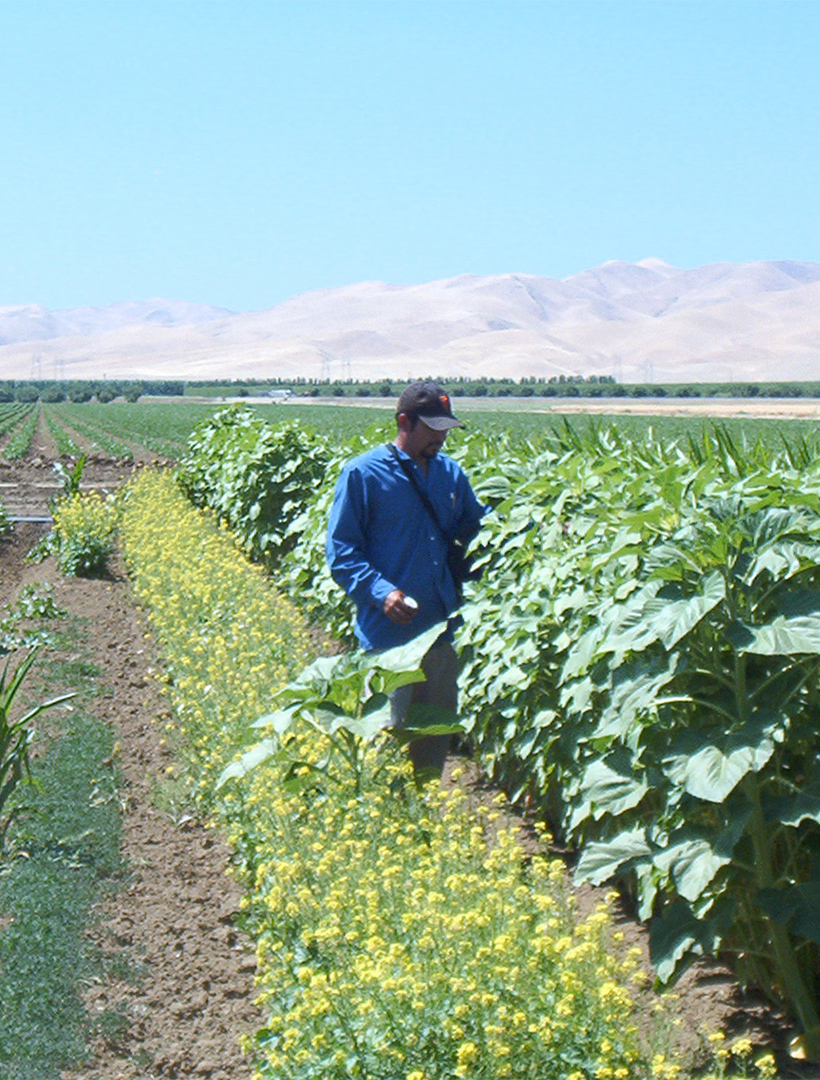 SCP field scout checking field and adjacent hedgerow for insect counts.
SCP field scout checking field and adjacent hedgerow for insect counts.
The practices that SCP promoted through field days, a dedicated project field scout, newsletters and online blog included:
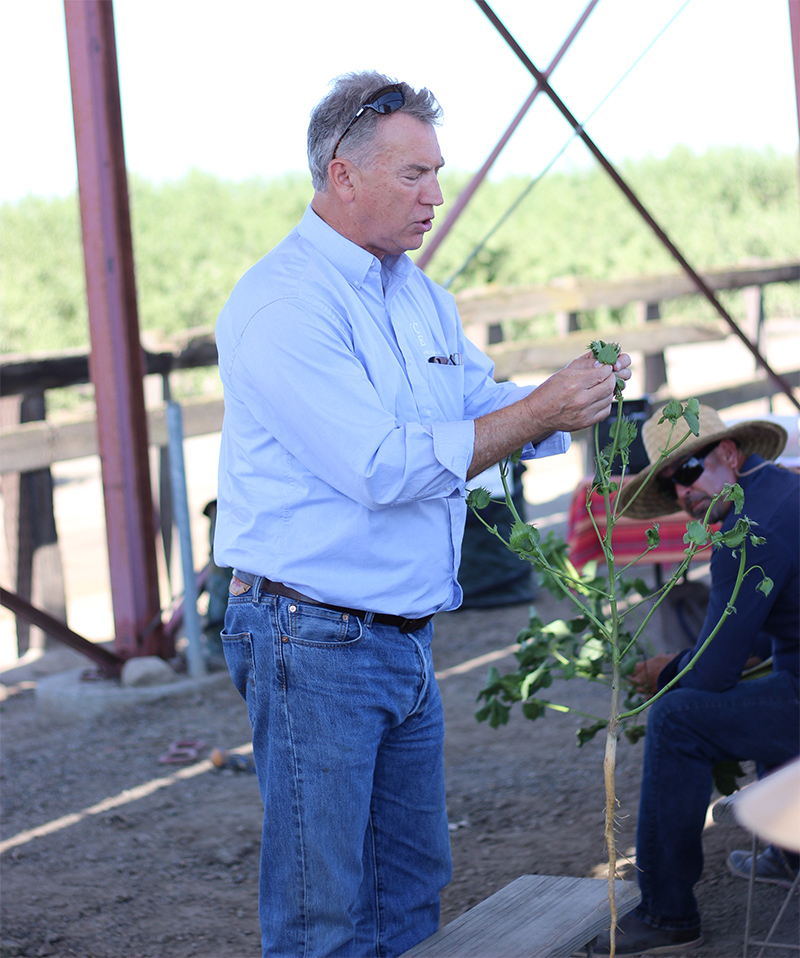
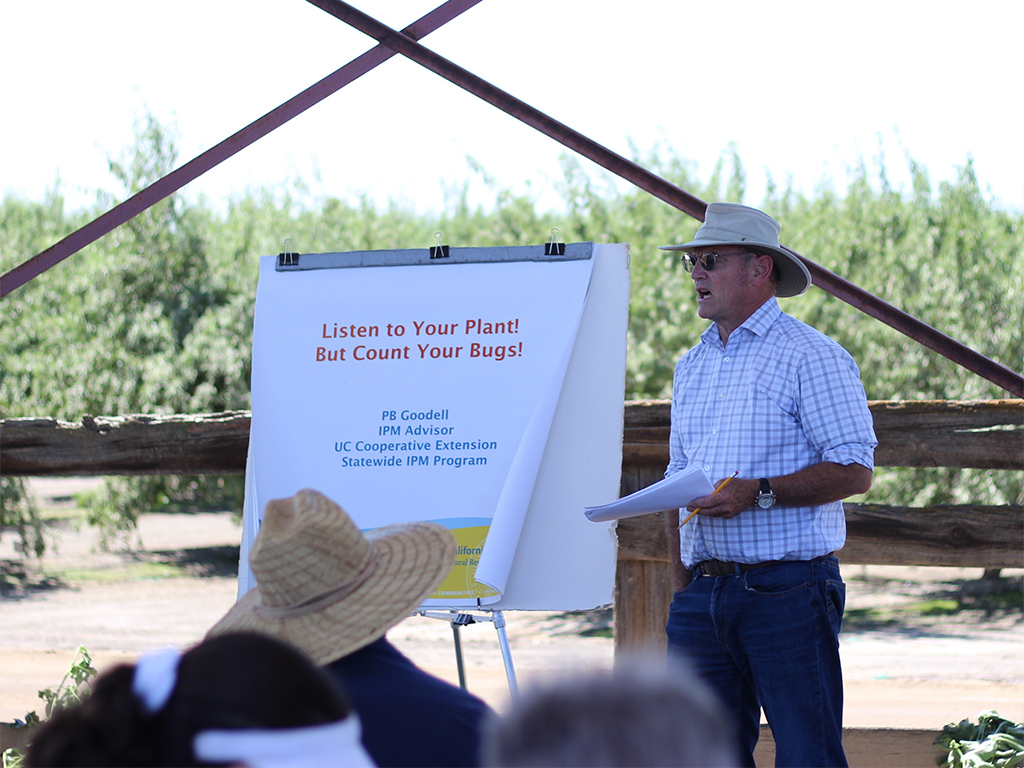
About our staff
Marcia Gibbs
Director, Sustainable Cotton Project
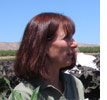 Marcia has 25 years of experience managing biological agriculture projects and has a deep understanding of what it takes to keep farmers profitable and on the land. With a Masters Degree in business and undergraduate degree in agriculture, Marcia has spent the last 20 years working with farmers on environmental and sustainability issues. Marcia was a family farmer in California's Sacramento Valley for 7 years and was formerly Program Manager of the Community Alliance with Family Farmers' (CAFF) successful Biologically Integrated Orchard Systems program. She has been managing SCP's Cleaner Cotton™ program since 2002. In 2010, her Biological Agriculture program team earned an IPM Innovator Award from the California Department of Pesticide Regulation. She maintains direct working relationships with Cleaner Cotton™ program growers, understands their issues and needs and serves as the science based link from the field to the market.
Marcia has 25 years of experience managing biological agriculture projects and has a deep understanding of what it takes to keep farmers profitable and on the land. With a Masters Degree in business and undergraduate degree in agriculture, Marcia has spent the last 20 years working with farmers on environmental and sustainability issues. Marcia was a family farmer in California's Sacramento Valley for 7 years and was formerly Program Manager of the Community Alliance with Family Farmers' (CAFF) successful Biologically Integrated Orchard Systems program. She has been managing SCP's Cleaner Cotton™ program since 2002. In 2010, her Biological Agriculture program team earned an IPM Innovator Award from the California Department of Pesticide Regulation. She maintains direct working relationships with Cleaner Cotton™ program growers, understands their issues and needs and serves as the science based link from the field to the market.
Lynda Grose
Co-founded ESPRITecollection. Professor at California College of the Arts, where she teaches fashion and sustainability
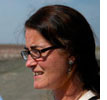 Lynda has worked in the apparel industry for 35 years and with the Sustainable Cotton Project since 1996 . She founded Esprit's ecollection division in 1990, a five-year research and development project marketed in 13 countries, which helped establish new environmental standards for the mainstream clothing industry. Lynda has worked with companies and organizations around the world, including the Sustainable Cotton Project, Aid to Artisans, Patagonia, Hanna Anderson, Gap Inc, Levi Strauss and Co., Aveda, Odwalla, Technoserve, Arminco, to name a few. She has served as chair of Fashion Design at California College of the Arts, San Francisco, and co-author of the book: Sustainable Fashion and Textiles: design for change. For SCP, she brings an understanding of fashion, mainstream apparel companies/markets, and yarn/fabric development.
Lynda has worked in the apparel industry for 35 years and with the Sustainable Cotton Project since 1996 . She founded Esprit's ecollection division in 1990, a five-year research and development project marketed in 13 countries, which helped establish new environmental standards for the mainstream clothing industry. Lynda has worked with companies and organizations around the world, including the Sustainable Cotton Project, Aid to Artisans, Patagonia, Hanna Anderson, Gap Inc, Levi Strauss and Co., Aveda, Odwalla, Technoserve, Arminco, to name a few. She has served as chair of Fashion Design at California College of the Arts, San Francisco, and co-author of the book: Sustainable Fashion and Textiles: design for change. For SCP, she brings an understanding of fashion, mainstream apparel companies/markets, and yarn/fabric development.
Our Collaborators
Peter B. Goodell Ph.D.
University of California Cooperative Extension Advisor Emeritus, IPM
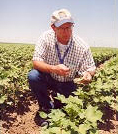 UC IPM scientist and SCP supporter Dr. Pete Goodell, now retired, continues to be an avid hiker and photographer of California's beautiful and diverse landscape. Pete still supports SCP farm tours and classroom visits to share his knowledge of entomology and cotton production. An entomologist working on Integrated Pest Management, Pete was a core part of the production help offered to SCP farmers.
UC IPM scientist and SCP supporter Dr. Pete Goodell, now retired, continues to be an avid hiker and photographer of California's beautiful and diverse landscape. Pete still supports SCP farm tours and classroom visits to share his knowledge of entomology and cotton production. An entomologist working on Integrated Pest Management, Pete was a core part of the production help offered to SCP farmers.
Daniel S. Munk M.S.
Farm Advisor, University of California Cooperative Extension Fresno County
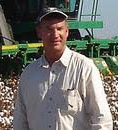 UC Cooperative Extension Farm Advisor, Dan Munk continues to support growers in irrigation management, crop nutrient management and cotton production systems. Dan was an essential part of SCP's support to growers by speaking at field days and meetings, farm tours and offering expert advice.
UC Cooperative Extension Farm Advisor, Dan Munk continues to support growers in irrigation management, crop nutrient management and cotton production systems. Dan was an essential part of SCP's support to growers by speaking at field days and meetings, farm tours and offering expert advice.
